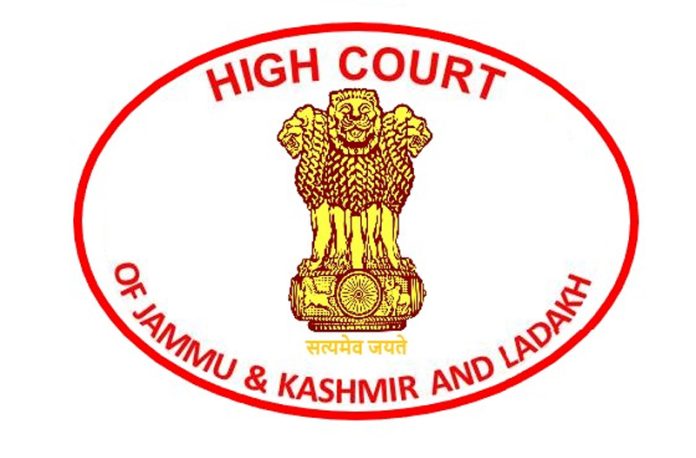Strictures passed against DC, SSP Poonch
*Deprecates curtailment of personal liberty in casual manner
Mohinder Verma
JAMMU, Sept 23: While deprecating the curtailment of personal liberty in most casual manner, the High Court of Jammu & Kashmir and Ladakh has held that preventive detention cannot be made alternative and substitute for ordinary law and absolve investigating authorities of their normal functions. Moreover, preventive detention order passed without examining a live and proximate link between the event amounts to punishment without trial.
Click Here To Join Daily Excelsior on WhatsApp And Get Latest News
This significant judgment has been delivered by Justice Wasim Sadiq Nargal while dealing with a petition filed by one Anjum Khan of village Mahra of Surankote tehsil of Poonch district whereby the petitioner challenged detention order dated 08.04.2024 passed under J&K Public Safety Act by District Magistrate Poonch on the dossier submitted by the Senior Superintendent of Police Poonch.
Senior Advocate Sunil Sethi appearing for the petitioner submitted that the order of detention is illegal, arbitrary and contrary to the provisions of the Act. “The order is based on two false and fabricated FIRs, details of which have not been reflected in the grounds of detention. However, it has not been indicated in the grounds that the petitioner has already been admitted to bail in both the FIRs”, he added.
“With a view to frustrate the order passed by the competent court in the bail application, which was later on made absolute, the impugned order of the detention has been passed. This aspect was deliberately concealed and suppressed by SSP Poonch in his dossier sent to District Magistrate”, counsel for the petitioner further submitted.
However, Deputy Advocate General Pawan Dev Singh appearing on behalf of respondents submitted that Detaining Authority has drawn subjective satisfaction before detaining the petitioner and there is sufficient incriminating material against the petitioner.
After hearing both the sides and perusal of detention record, Justice Wasim Sadiq Nargal observed, “there is no mention of receipt of dossier to the petitioner, which makes it evident that dossier was not supplied. Thus, the petitioner has been denied of his right of making effective representation, which infringes his Constitutional right enshrined under Article 22(5) of the Constitution of India”, adding “as already held by the Apex Court not every document to which passing reference has been made is to be furnished but such documents which are relied upon while arriving at subjective satisfaction are compulsorily required to be supplied”.
“The respondents ought to have approached the trial court for cancellation of the bail in case petitioner was allegedly indulging in nefarious activities or violating bail conditions. However, they have proceeded to pass an order of detention as a matter of afterthought with a view to defeat the bail order passed by the competent court”, the High Court said, adding “impugned detention order was issued by the respondents on the same date when the bail was made absolute just to keep him inside the jail. Therefore, respondents have adopted nefarious method of detaining the petitioner”.
The High Court further said, “the nature of crime as alleged against the petitioner can best be said to be a law and order situation and not the public order situation which would have justified invoking the powers under the preventive detention law”, adding “preventive detention cannot be made alternative/substitute for ordinary law and absolve investigating authorities of their normal functions”.
“The allegations leveled in the grounds of detention are pertaining to disputes between the private parties. Thus, the allegations and contents of the FIRs cannot be made the foundation for passing an order by invoking powers under Public Safety Act”, Justice Nargal said, adding “the detaining authority has not recorded any subjective satisfaction and has issued impugned order without application of mind, which is not sustainable in the eyes of law”.
Mentioning that allegations leveled in the ground of detention have no live approximate link with the allegations leveled in the FIRs, the High Court said, “a preventive detention order which is passed without examining a live and proximate link between the events amounts to punishment without trial”.
Discussing the conduct of the Detaining Authority (Deputy Commissioner Poonch) and the SSP Poonch, the High Court said, “impugned detention order smacks of foul play and malafide on part of the Detaining Authority which has issued detention order with a view to frustrate the bail order issued by the competent authority”, adding “once recourse to ordinarily criminal law is available, then preventive detention could not be resorted to”.
“The personal liberty of an individual is reckoned to be the greatest of human freedoms which is paramount and deeply imbedded in values of the Constitution. Despite putting all the emphasis on this precious and prized right, we often encounter the curtailment of personal liberty in most casual manner by the authorities entrusted with upholding democratic faith”, the High Court remarked, adding “the authorities have to strike a balance between individual liberty and maintenance of public order”.
The High Court further said, “the inability on part of the State’s Police machinery to take recourse to ordinary criminal law should not be an excuse to invoke the jurisdiction of preventive detention. In the instant case, the relevant provisions in the Indian Penal Code were clearly sufficient to deal with the situation. However the respondents have invoked provisions of the Public Safety Act to indirectly achieve something which could not be achieved directly by them—detention of the petitioner”.
With these observations, the High Court quashed the impugned detention order for being in violation of fundamental rights which amounts to gross violation of personal liberty and right to life. The High Court also directed that detenue be set at liberty forthwith if not required in any other case(s).




